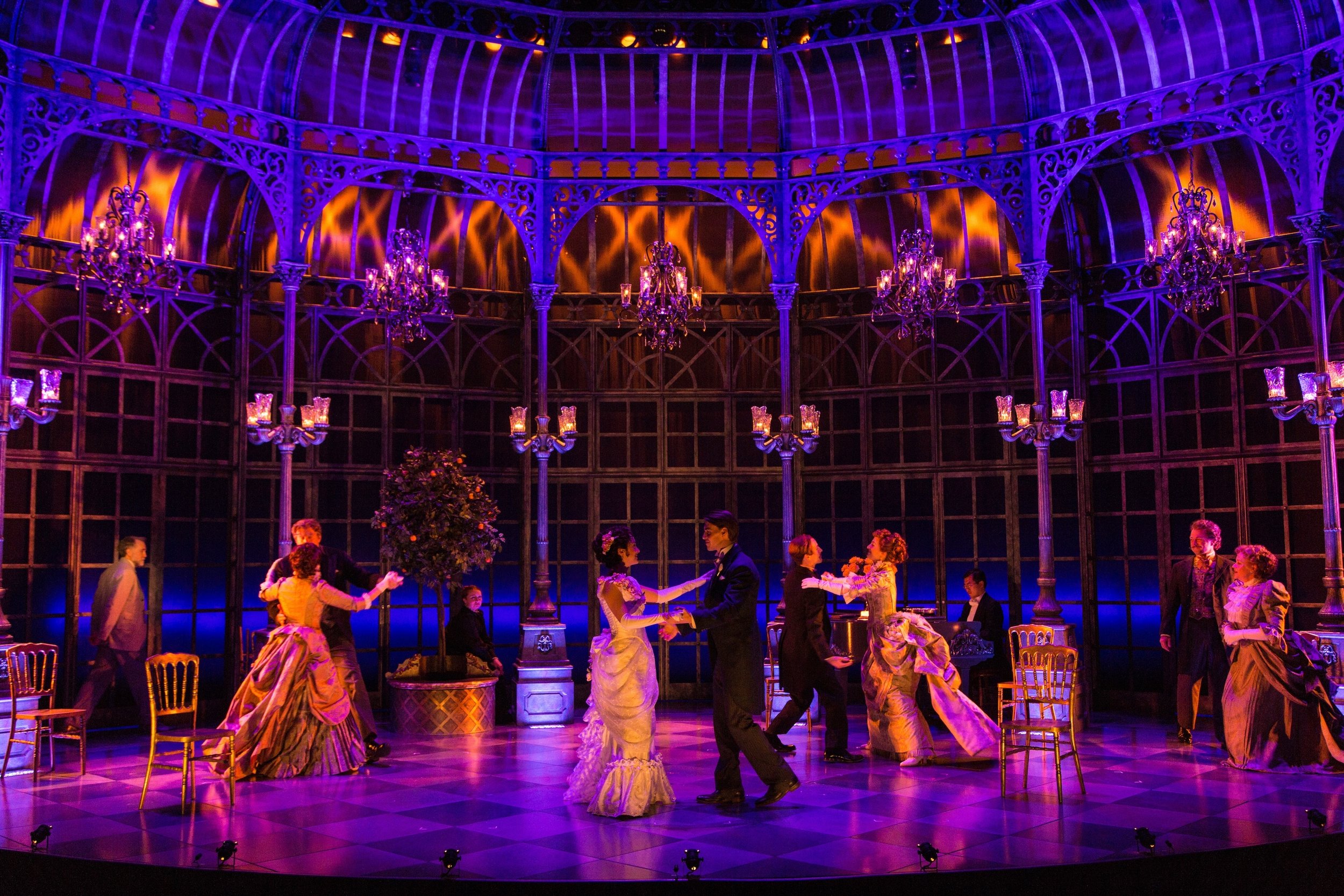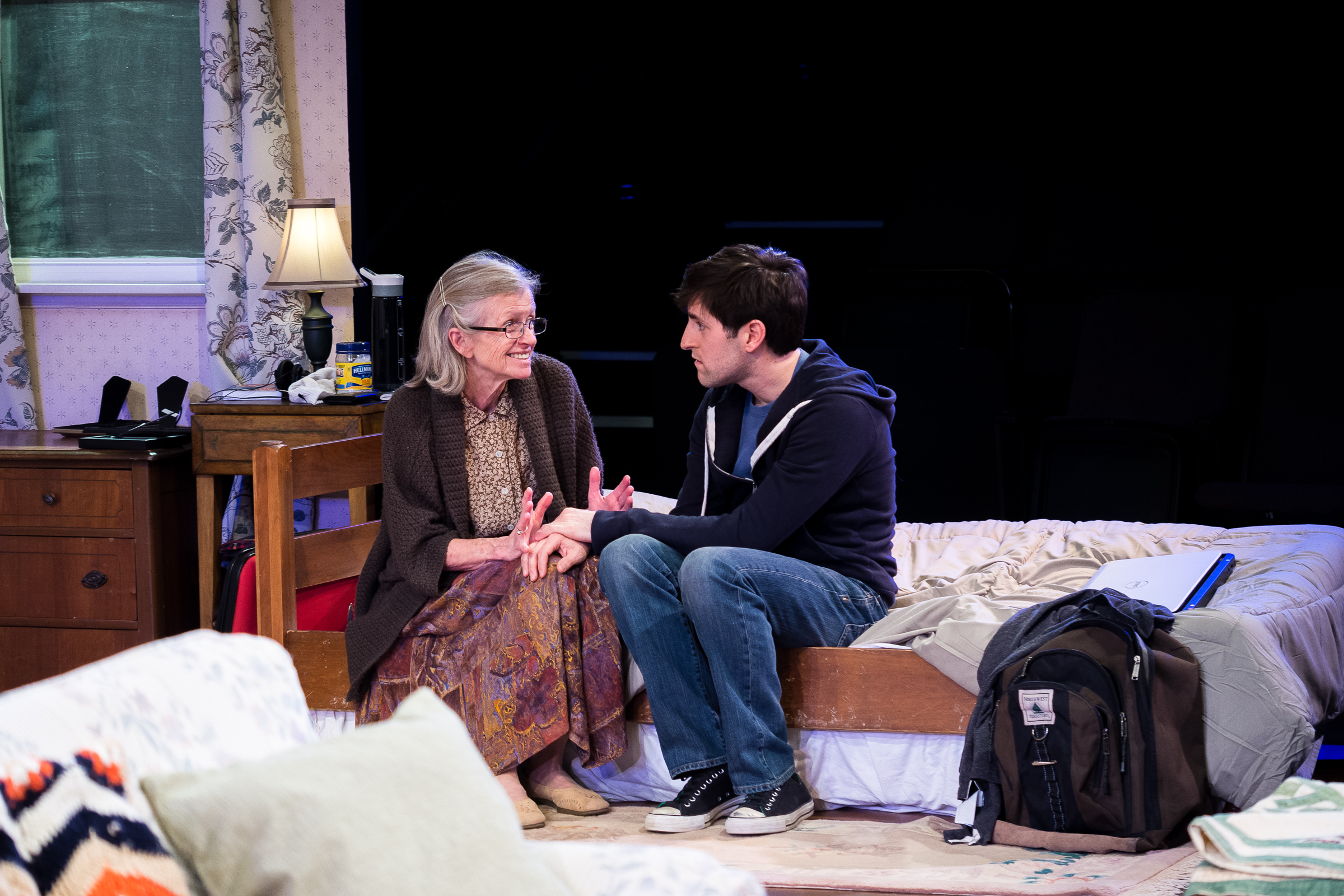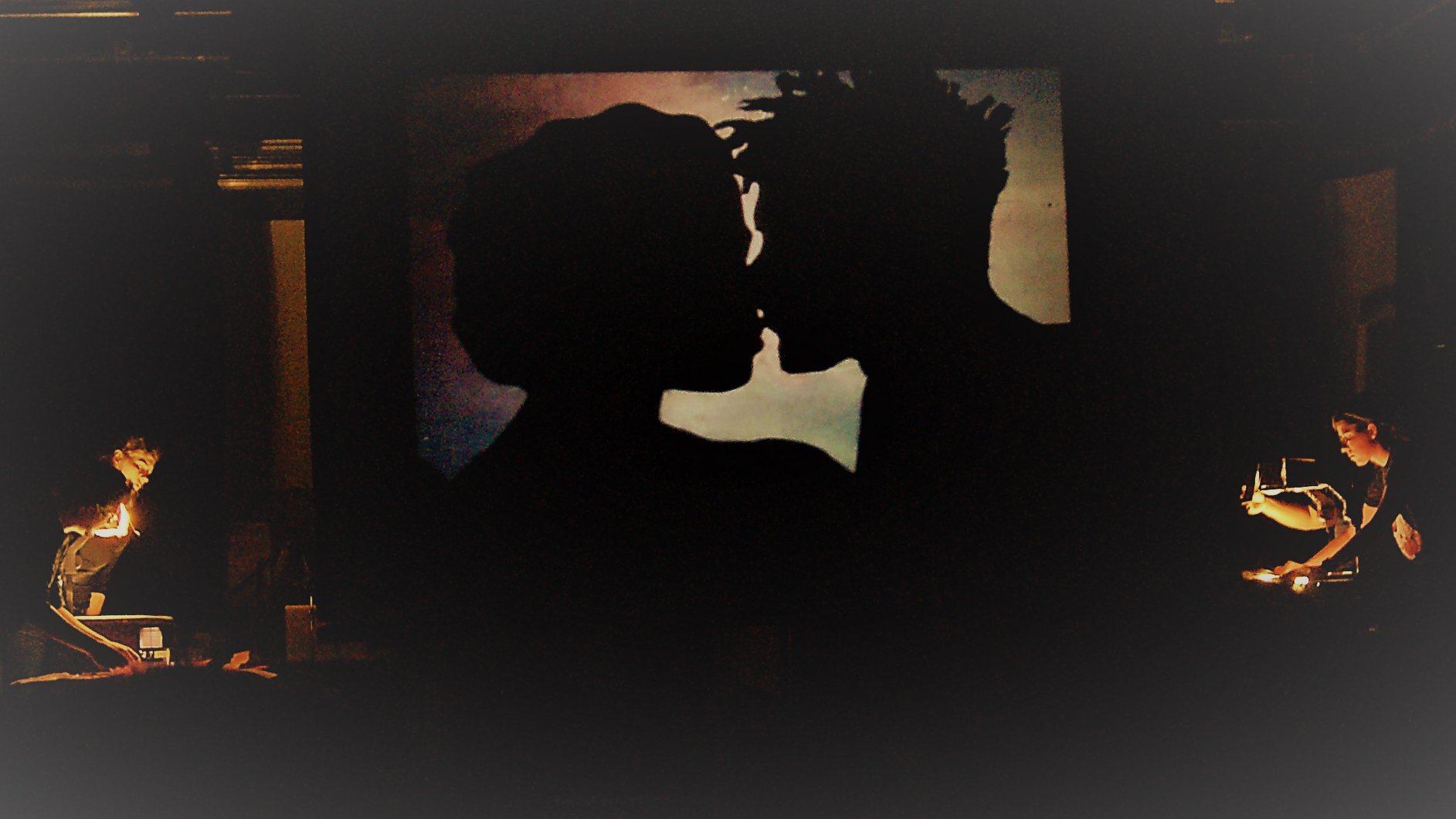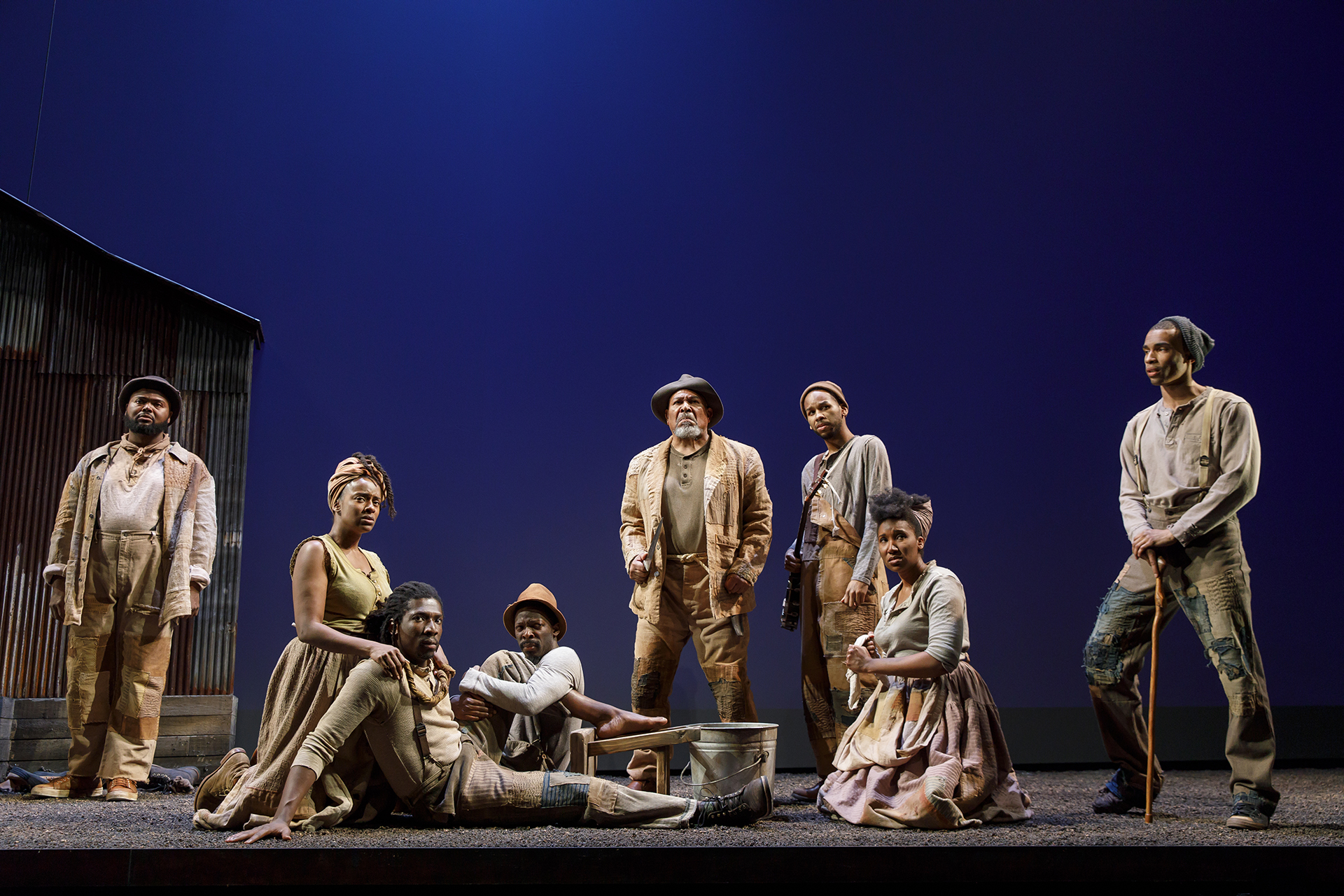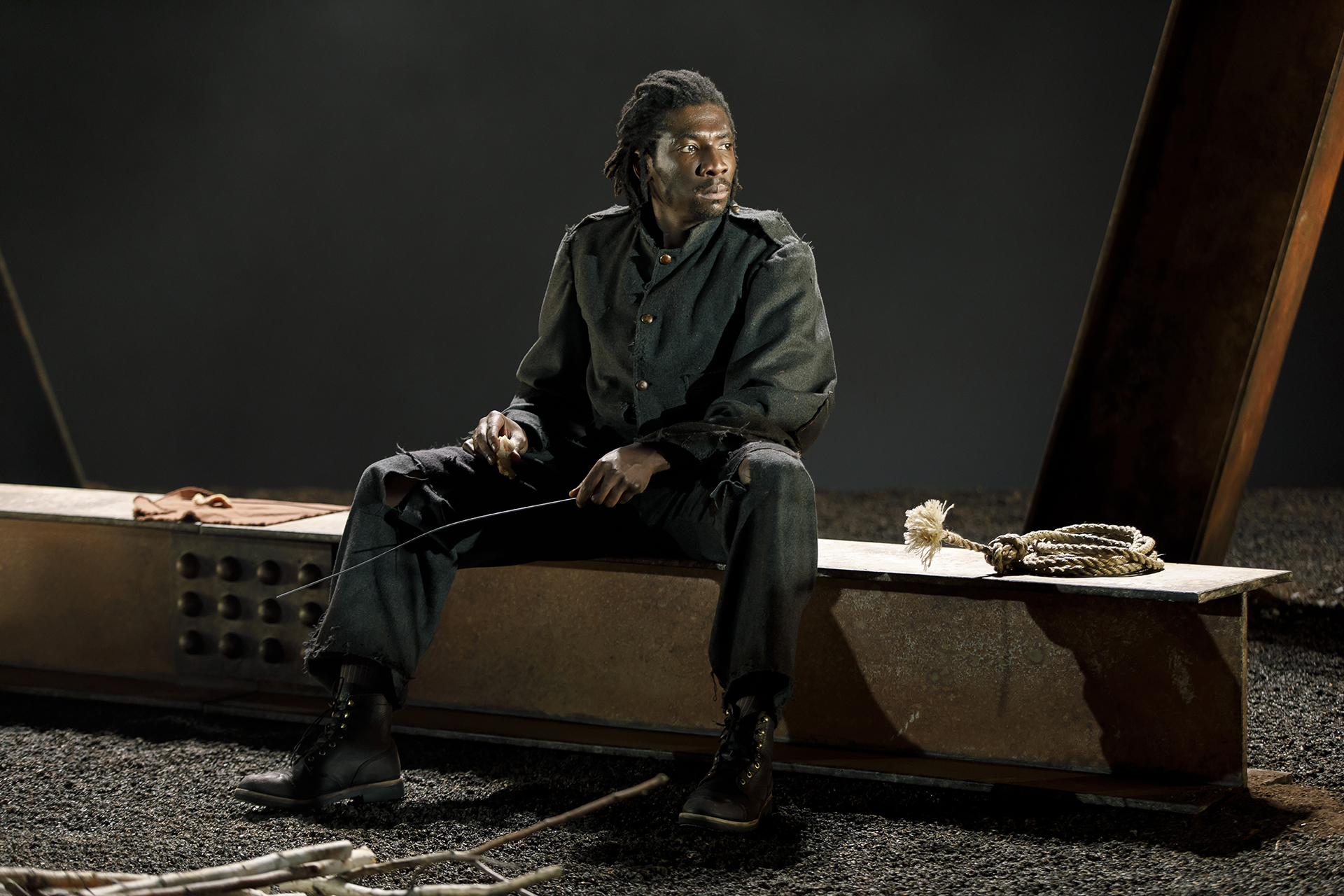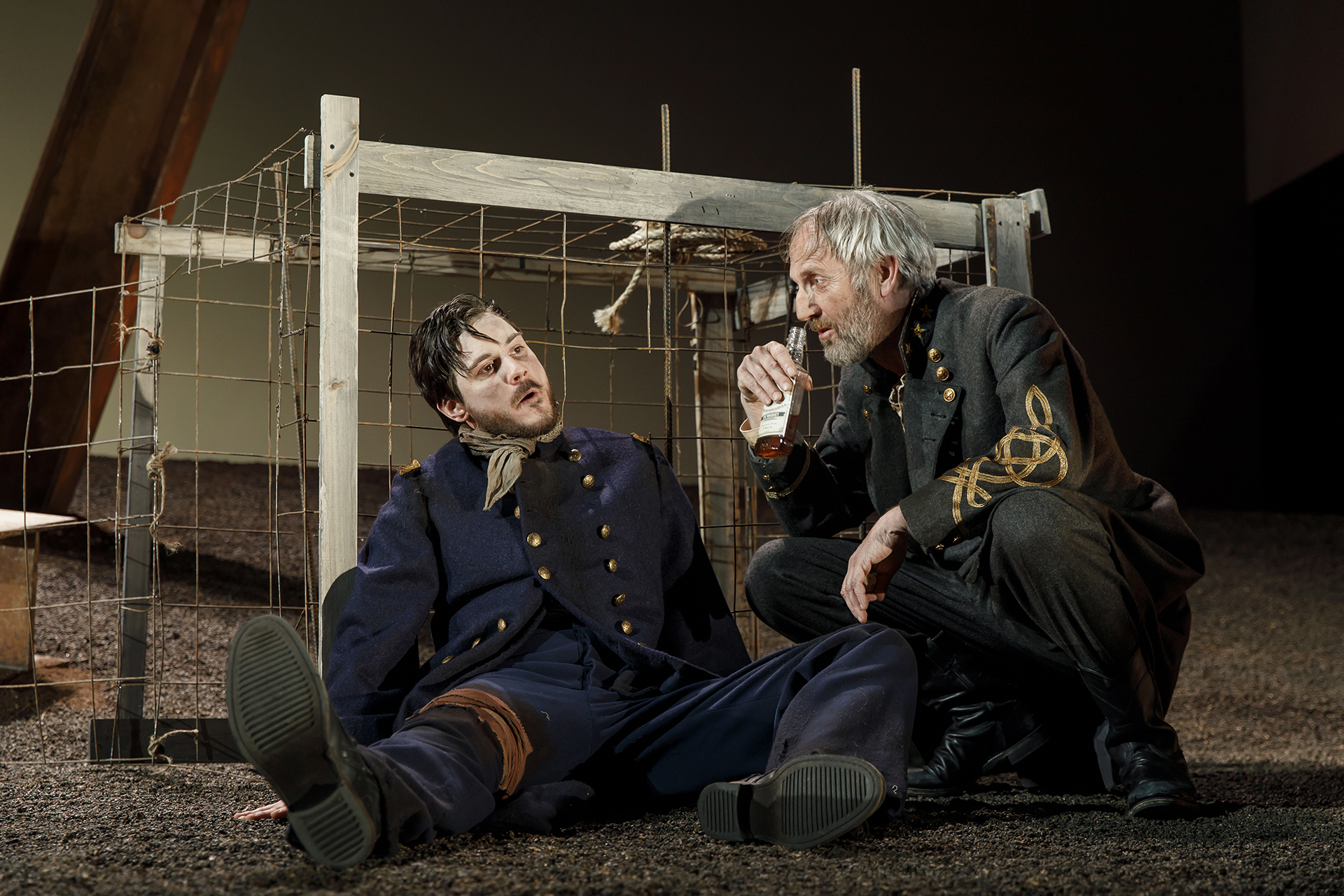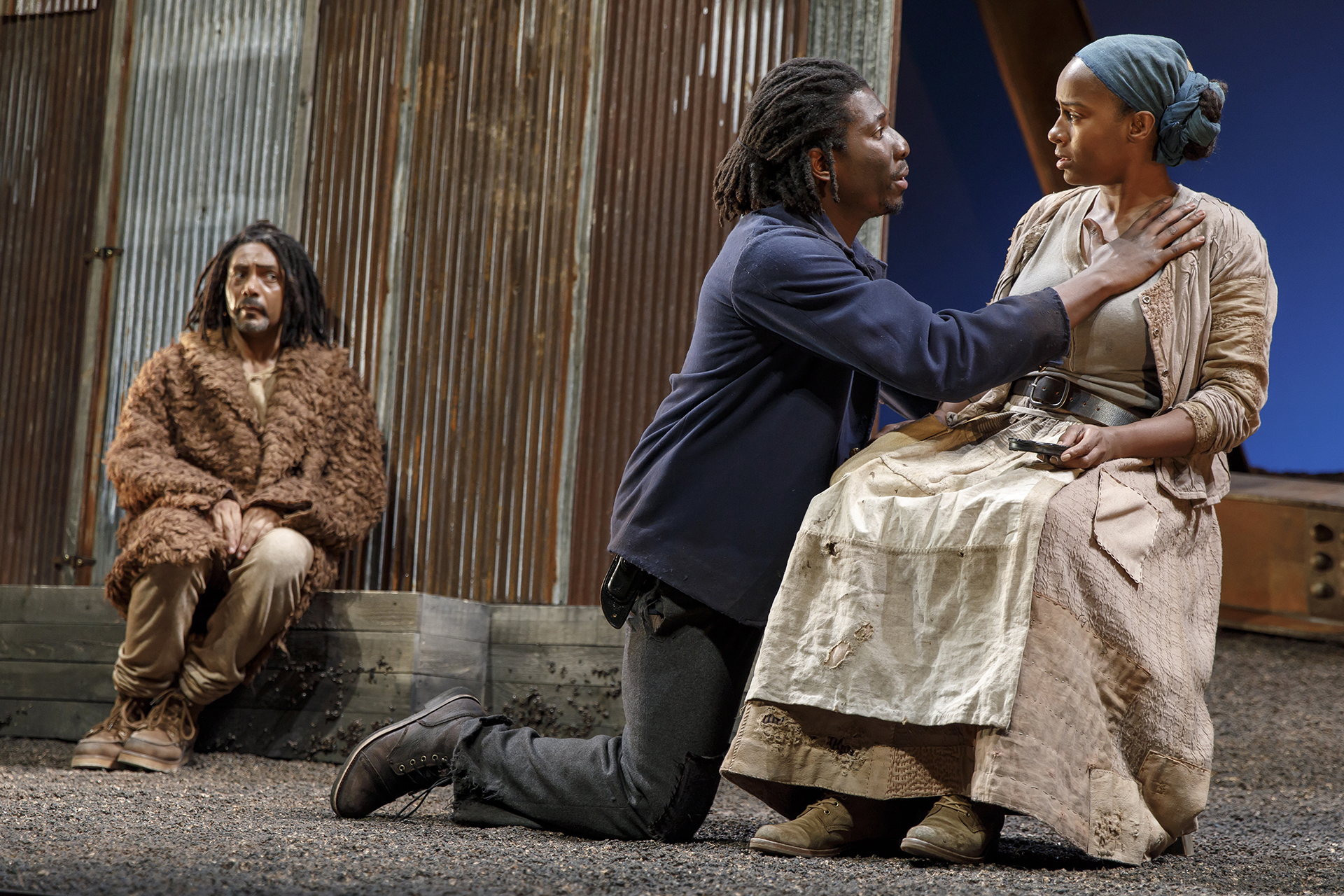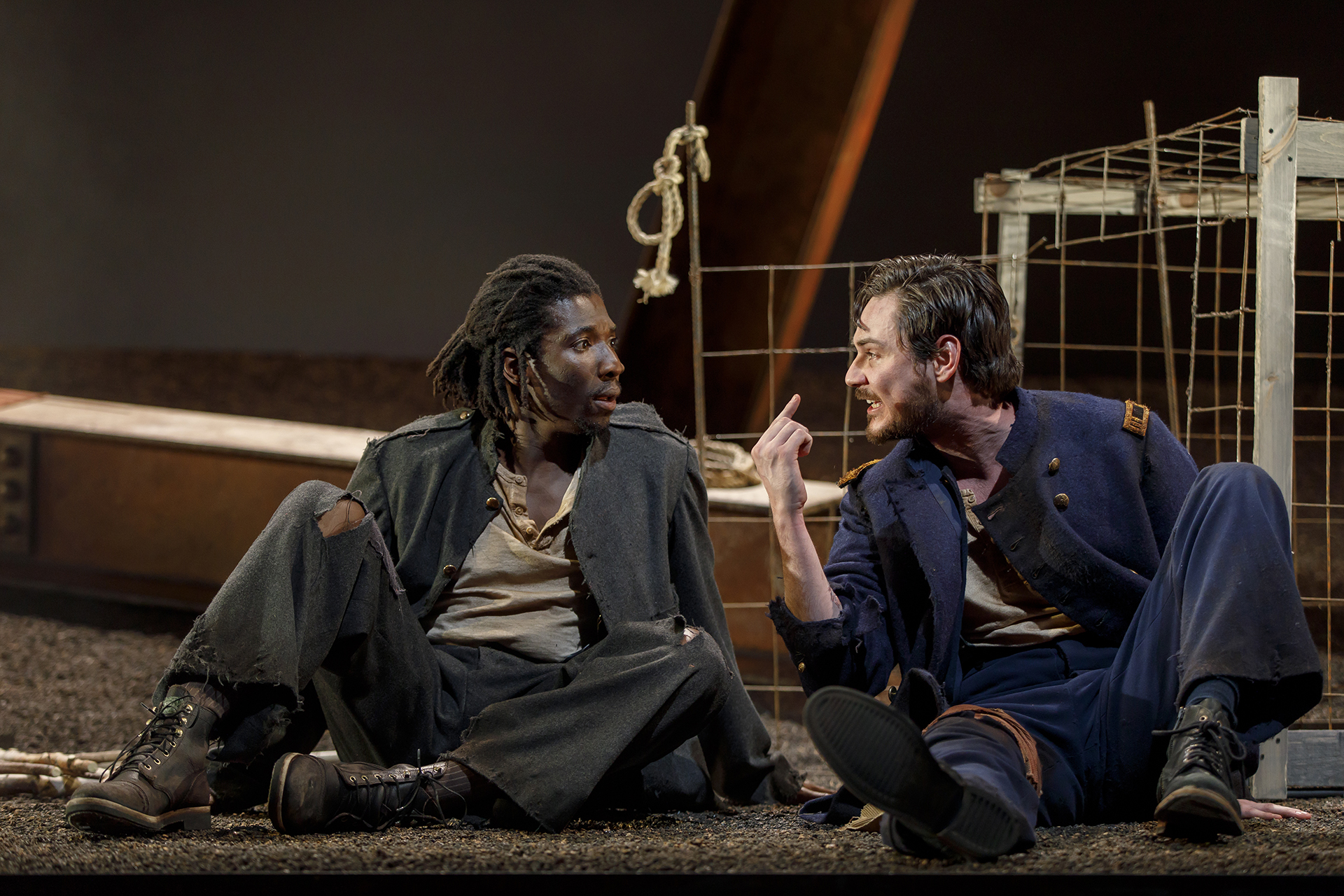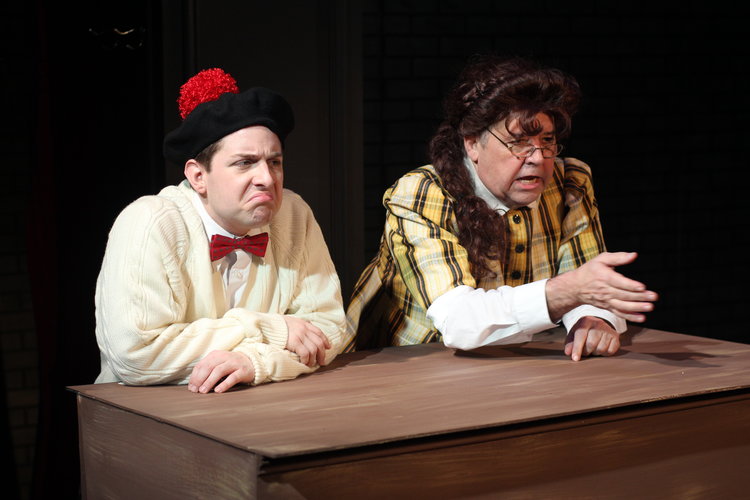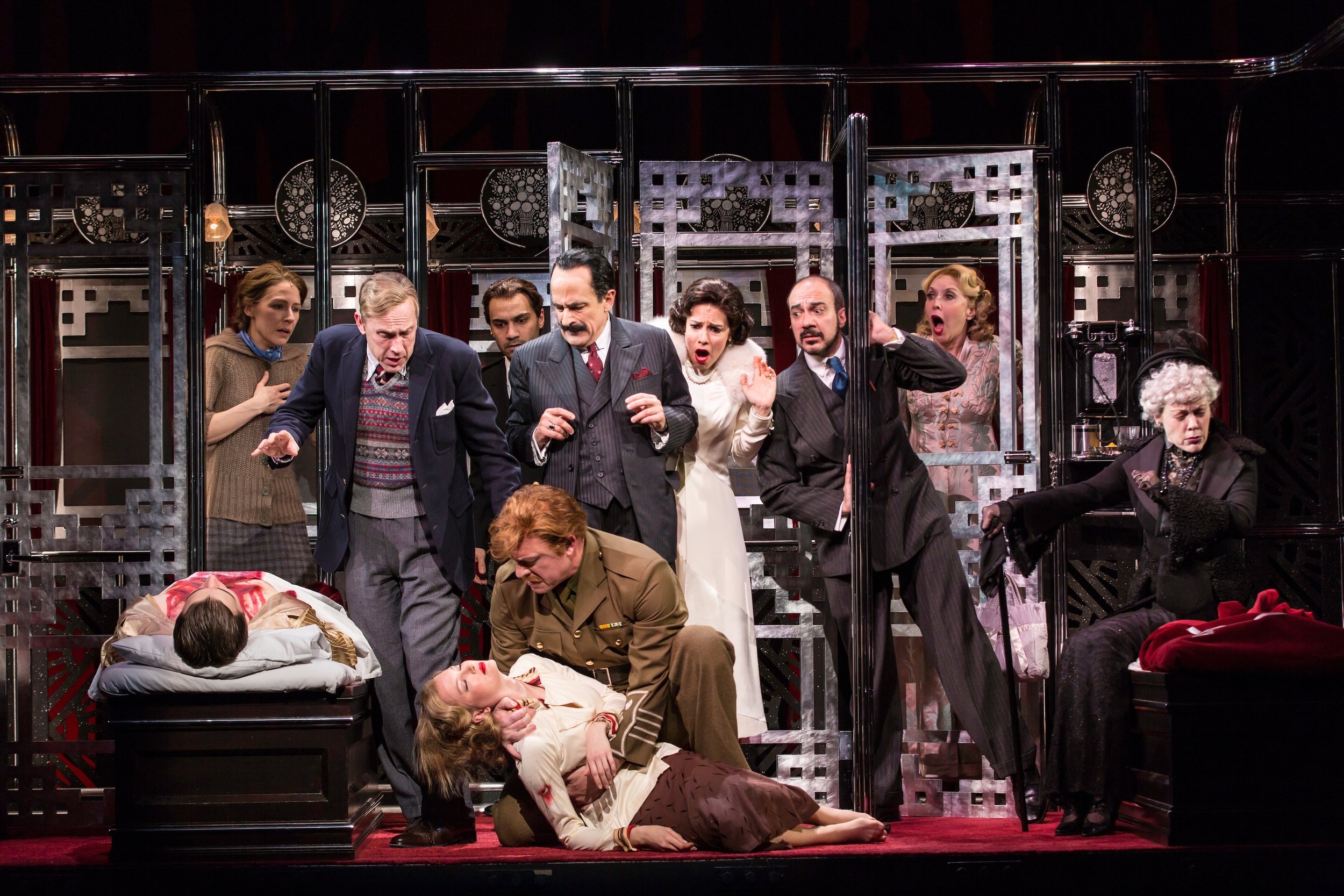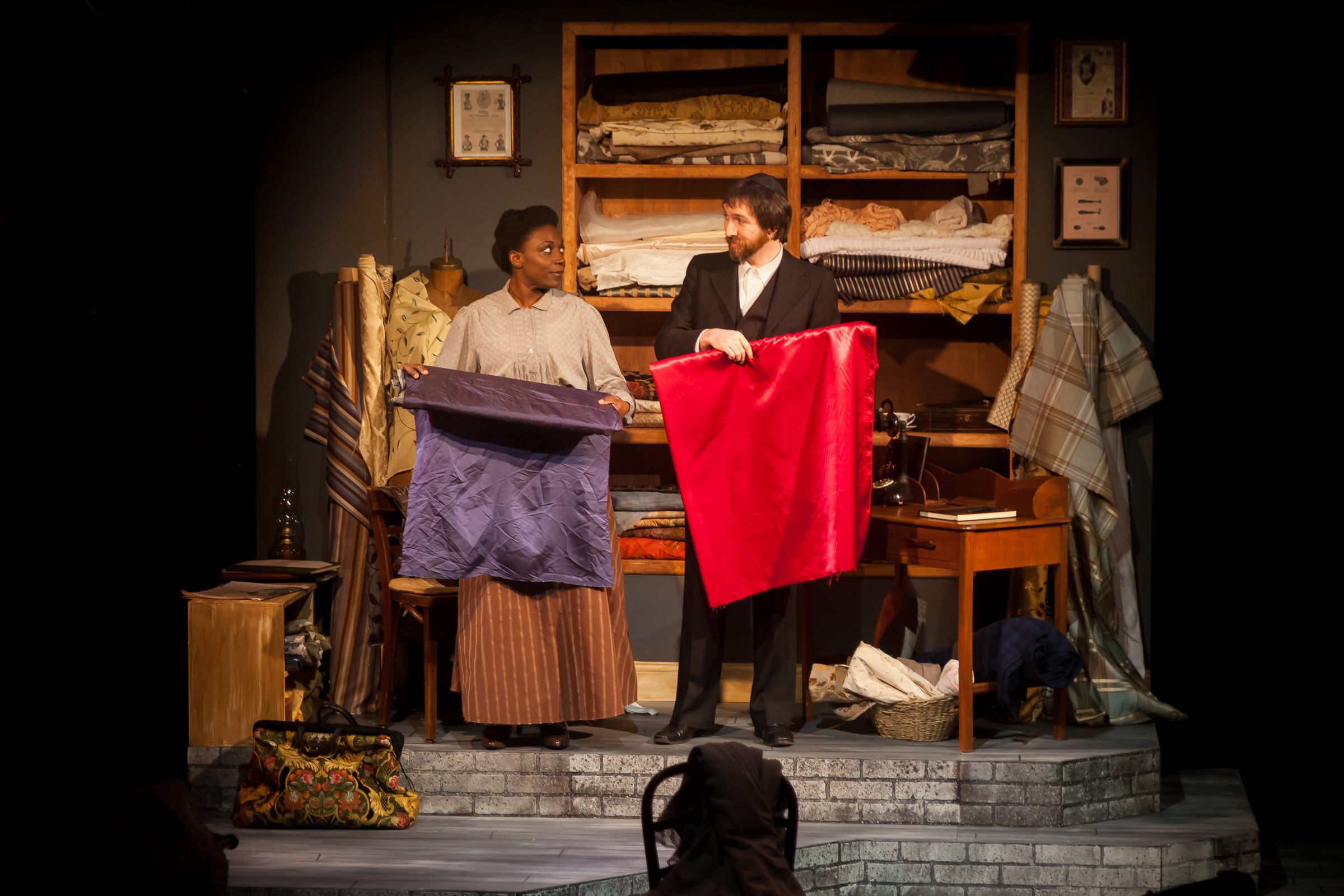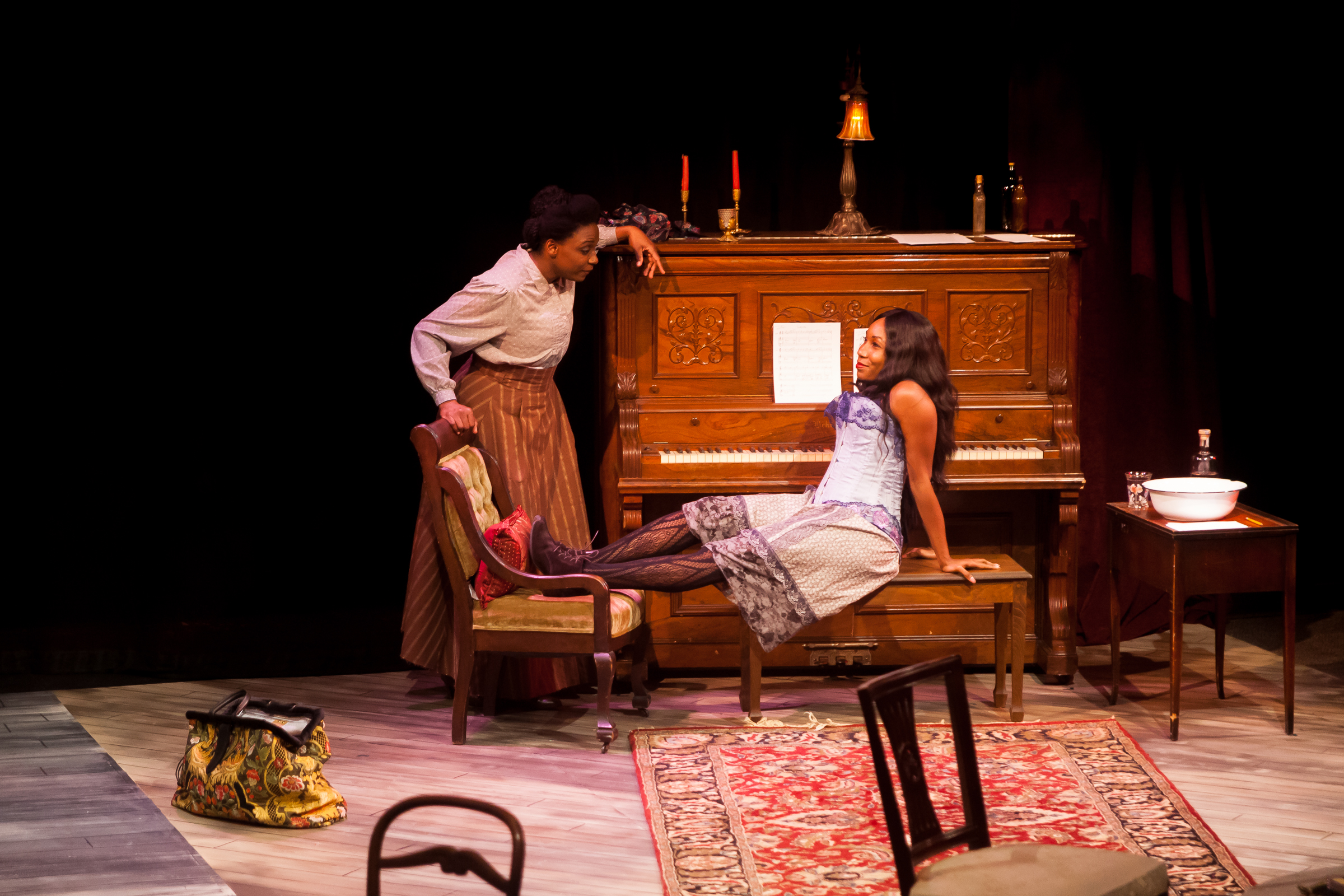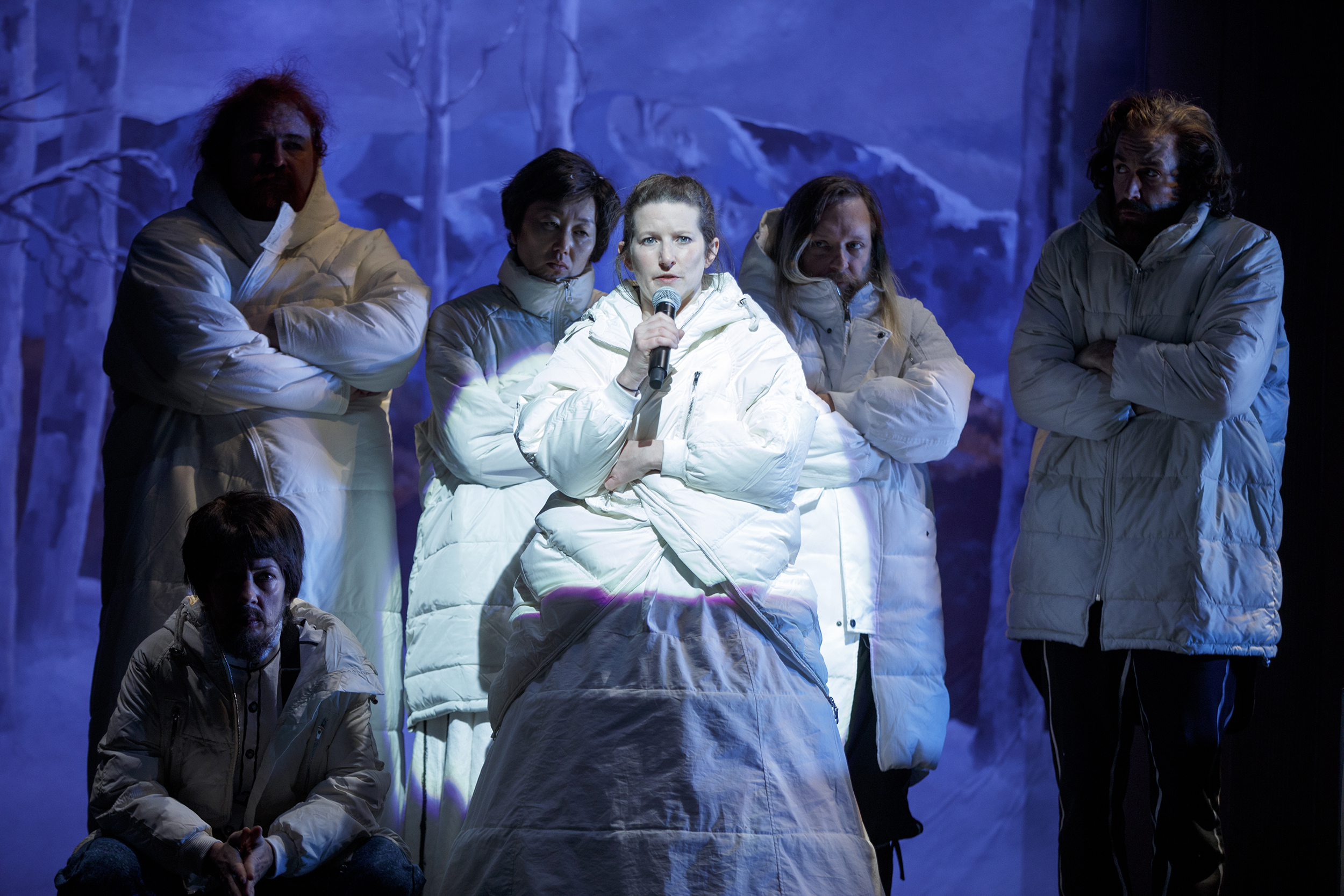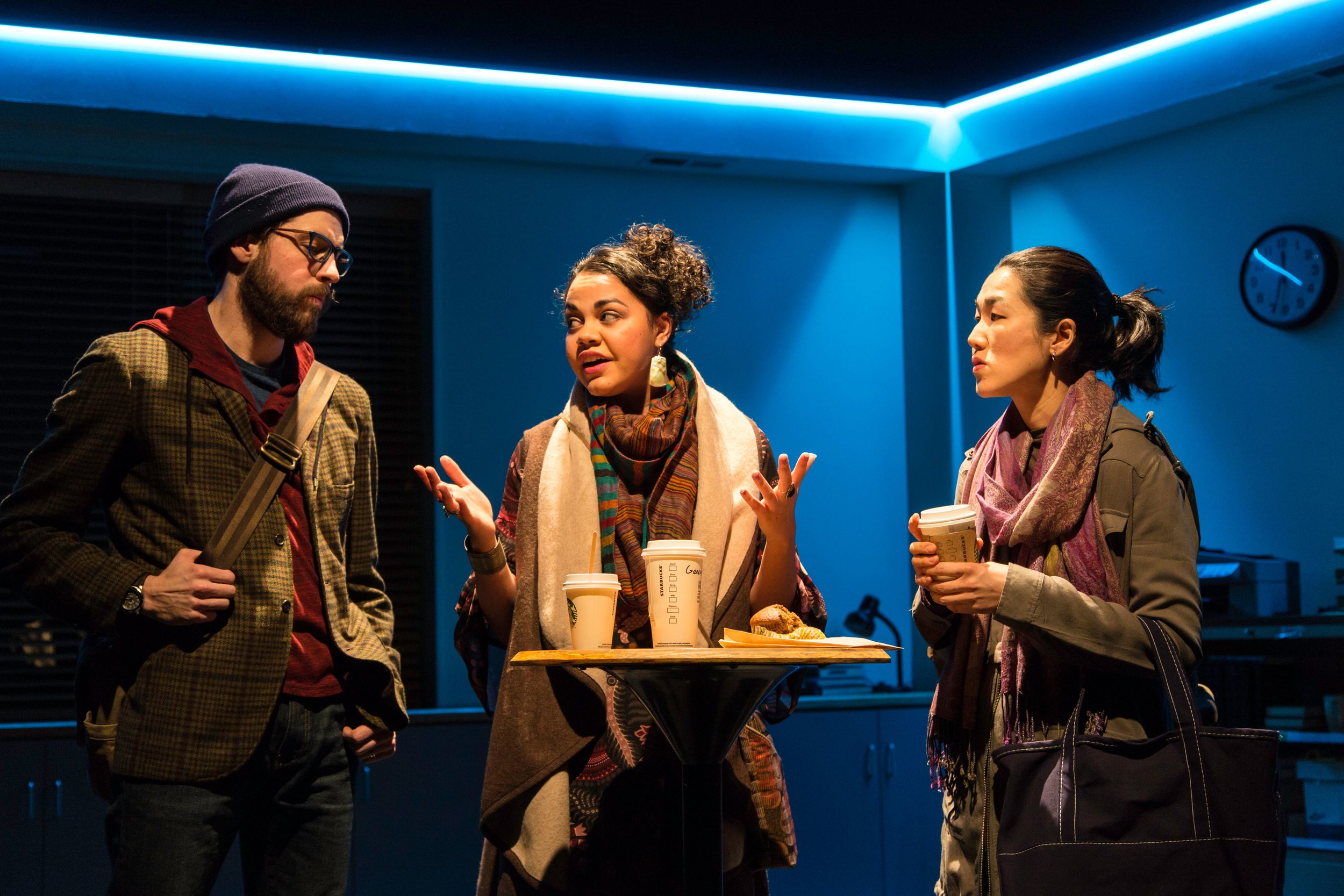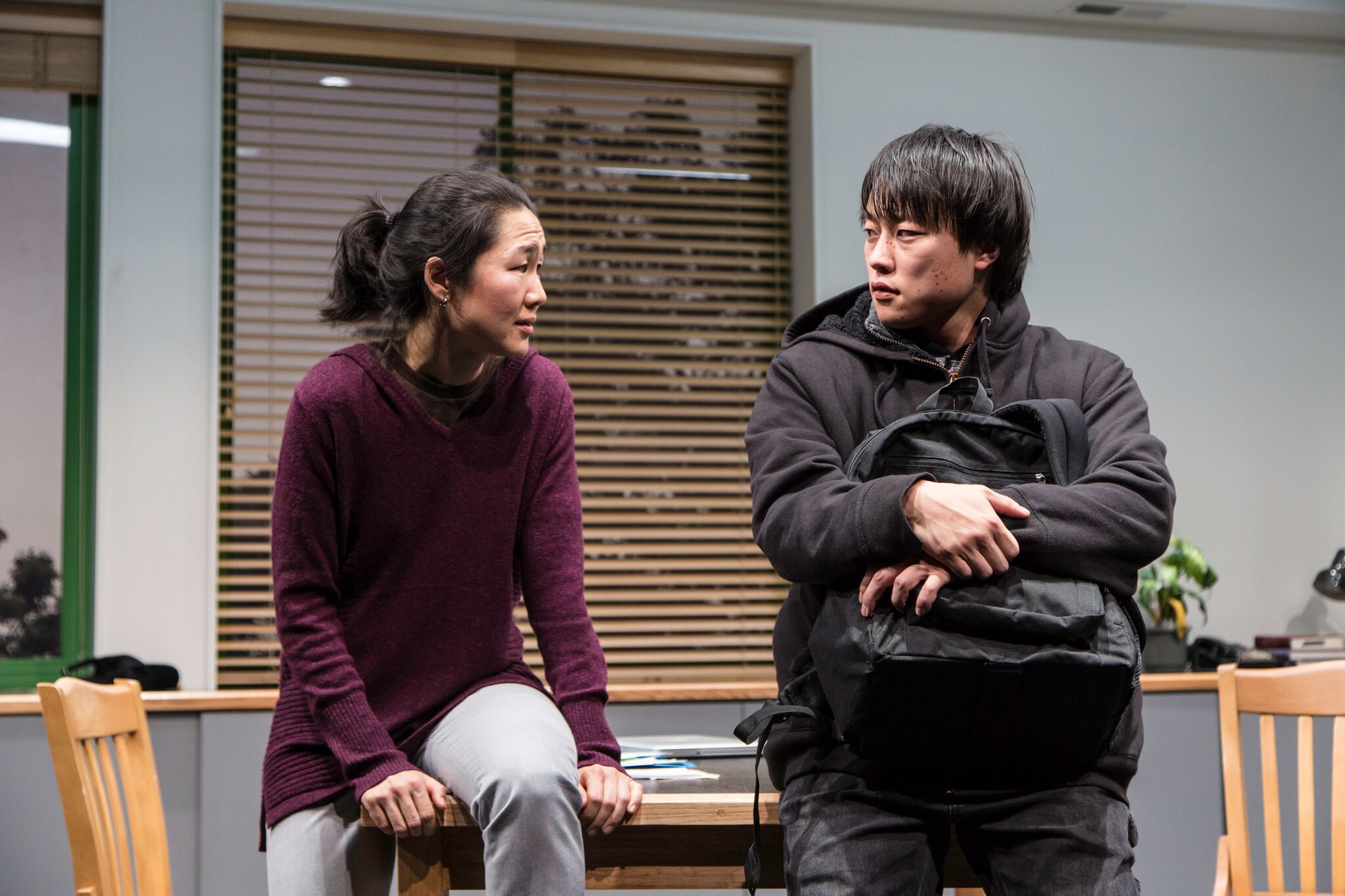Review of Camille, a Tearjerker, Yale Cabaret
In Hollywood terms, a “tearjerker” is a film in which, generally, the heroine dies, often suffering from what Mad magazine called “old movie disease,” a condition that allows heroines to die looking better than they ever have, transfigured by their love and the love that the grieving display.
Sentimental? Mawkish? Clichéd? Yes, but that’s the very thing that attracted the late playwright/actor Charles Ludlam, the performer behind Camille, a Tearjerker, a flagrantly over-the-top adaptation—or “travesty”—of La Dame aux Camelias by Alexandre Dumas, fils, a novel Dumas adapted into a play, which, in English, became Camille, and as an opera by Verdi, La Traviata. Onstage the central character, Marguerite Gautier, was played by many of the greats—Sarah Bernhardt, Eleanora Duse, Tallulah Bankhead—and, in George Cukor’s film, by Greta Garbo.
The heroine, a pampered courtesan, juggles the love of a Baron and of a bourgeois young man, Armand Duval. She’s willing to let the money of the first help her finance her romance with the second. Eventually, due to the entreaties of Armand’s father, she sacrifices her love for Armand in that grand gesture evoked in Baz Luhrmann’s Moulin Rouge! (which copped most of its plot and operatic manner from this tale) as, “hurt him to save him.” In the end, of course, Armand realizes the depths of her sacrifice at the very moment when “old movie disease,” or consumption (its equivalent in nineteenth-century novels), carries Marguerite away in a rapture of lovely death.
Ludlam, the reigning genius behind “Ridiculous Theater,” a creation of the 1970s, treats this story, in which he played Marguerite, to several insights. One: audiences love both to laugh and to cry, and if they can do both at once, they become nearly ecstatic. Two: the aesthetic of gay theater has much to do with walking the fine line between bathos and eros. Typically, in straight theater, a guy in a dress is the height of laughable; in gay or drag theater, a man who acts out as a woman stands for a kind of longing that might be sad, might be a turn-on, might be amusingly self-aware. Ludlam let it all in, and that supplies the energy behind the version of Camille at Yale Cabaret, directed by Molly FitzMaurice, and starring Michael Breslin, both second-year dramaturgs at the Yale School of Drama.
Emma Weinstein’s fascinating set design includes the entire Cabaret space, making us intimates of Marguerite Gautier’s boudoir. On the piano, Liam Bellman-Sharpe performs a soundtrack that might accompany a silent movie, creating all kinds of mood and support, as well as dramatic comment when Breslin or Devin White, as the Baron De Varville, mime playing.
Marguerite Gautier (Michael Breslin), Armand Duval (Arturo Soria) (photos by Steph Waaser)
Alicia Austin’s costumes too are key to the effect, from Marguerite’s great meringue of a dress, coupled with Bo-Peep curls, to the tall chapeau atop the tête of Prudence Duvernoy (Rory Pelsue) that threatens to scrape the overhead lights with each entrance onto the central raised stage. The action is entirely in the round (or in the rectangular), and that means the blocking is itself an expressive device. We look on from our respective vantages as a gaggle of characters flounce on and off, with the majority of the roles played by men dressed as women and women dressed as men. It goes on a little overlong, but everyone is having so much fun it’s like being a guest at a wedding of someone close—even if you’re a little bored, you can’t look away.
Arturo Soria’s Armand Duval, ostensibly a Frenchman, is a hilariously smitten young man who spouts Spanish and adopts poses typically associated with ‘the Latin lover.’ Meanwhile, Emma Weinstein plays Duval père as a fussy Brit. Nahuel Telleria’s Nanine, Marguerite’s ever-attentive attendant, keeps a tongue firmly in cheek and dotes well. In supporting roles, Catherine María Rodríguez as Gaston Roué and Patrick Young as Olympe de Taverne chew scenery while swaggering or mincing, as appropriate. Caitlin Cromblehome does catty demure as Nichette Fondue and Devin White’s Baron is quite convincing in the role of the Byronic nobleman eager to walk on the wild side. The challenge of a duel between the Baron and Armand is a hilarious joust of spouting saliva. Then there’s Pelsue’s Prudence, a walking travesty of camp, which is no easy thing to be. Her voice seems at times a Bronx transplant, and her manner that of a runner-up belle of the ball, capricious, carping, and, when she comes begging late in the play, full of cupidity.
Marguerite Gautier (Michael Breslin), Armand Duval (Arturo Soria)
The star, ever ready for her DeMille close-up, is Breslin’s Marguerite, Dumas’ heroine by way of Hollywood and Tennessee Williams, clowning while entirely caught up. The pathos—and there is plenty beneath the extravagant comedy—is that of a woman who lives entirely by her wits and her charms. That’s an essential skill for a life in the demimonde, of course, but also for the stage. In the nineteenth century, those realms were interchangeable; in the twentieth, après Stonewall and Warhol, la demimondaine, c’est la reine. In our transgender era, the camp aspects of drag give way to a both/and aesthetic that puts Breslin’s performance beyond mere mimicry or travesty. Which is what Ludlam was aiming for, a kind of theater that you never believe for a minute—as a facsimile of “real life”—but which holds any fantasy’s artifice to the fire.
Once upon a time, they wept for Marguerite’s sacrifice, her story both a cautionary tale and a heroic embrace of the way that so few would dare live—for love alone. From the verge of such a plunge, audiences returned to their drawing-rooms still flushed from such an exposure. In Ludlam’s Camille, the jest is a glimpse of a world where the absurd and the sublime are two sides of the same coin, like butch and femme, and all the world’s a stage.
Camille, A Tearjerker
A Travesty on La Dame aux Camelias by Alexandre Dumas fils
By Charles Ludlam
Directed by Molly FitzMaurice
Starring Michael Breslin
Producer: Sophie Siegel-Warren; Sound Design & Original Music: Liam Bellman-Sharpe; Scenic Design: Emma Weinstein; Costume Design: Alicia Austin; Lighting Design: Emma Deane; Production Dramaturg: Catherine María Rodríguez; Technical Director: Yaro Yarashevich; Stage Manager: Madeline Charne; Spanish Translations: Arturo Soria; Choreography: Michael Breslin, Arturo Soria; Makeup Artists: Ashley Holvick, Catherine María Rodríguez; Videography: Amauta Marston Firmino
Cast: Michael Breslin, Caitlin Crombleholme, Rory Pelsue, Catherine María Rodríguez, Rachel Shuey, Arturo Soria, Nahuel Telleria, Emma Weinstein, Devin White, Yaro Yarashevich, Patrick Young
Yale Cabaret
April 26-28, 2018








